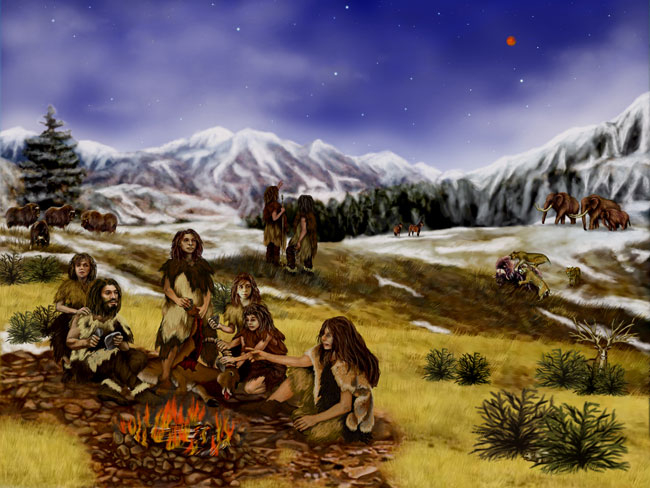The Real Question: Who Didn't Have Sex with Neanderthals?

Get the world’s most fascinating discoveries delivered straight to your inbox.
You are now subscribed
Your newsletter sign-up was successful
Want to add more newsletters?

Delivered Daily
Daily Newsletter
Sign up for the latest discoveries, groundbreaking research and fascinating breakthroughs that impact you and the wider world direct to your inbox.

Once a week
Life's Little Mysteries
Feed your curiosity with an exclusive mystery every week, solved with science and delivered direct to your inbox before it's seen anywhere else.

Once a week
How It Works
Sign up to our free science & technology newsletter for your weekly fix of fascinating articles, quick quizzes, amazing images, and more

Delivered daily
Space.com Newsletter
Breaking space news, the latest updates on rocket launches, skywatching events and more!

Once a month
Watch This Space
Sign up to our monthly entertainment newsletter to keep up with all our coverage of the latest sci-fi and space movies, tv shows, games and books.

Once a week
Night Sky This Week
Discover this week's must-see night sky events, moon phases, and stunning astrophotos. Sign up for our skywatching newsletter and explore the universe with us!
Join the club
Get full access to premium articles, exclusive features and a growing list of member rewards.
The only modern humans whose ancestors did not interbreed with Neanderthals are apparently sub-Saharan Africans, researchers say.
New findings suggest modern North Africans carry genetic traces from Neanderthals, modern humanity's closest known extinct relatives.
Although modern humans are the only surviving members of the human lineage, others once roamed the Earth, including the Neanderthals. Genetic analysis of these extinct lineages’ fossils has revealed they once interbred with our ancestors, with recent estimates suggesting that Neanderthal DNA made up 1 percent to 4 percent of modern Eurasian genomes. Although this sex apparently only rarely produced offspring, this mixing was enough to endow some people with the robust immune systems they enjoy today.
The Neanderthal genome revealed that people outside Africa share more genetic mutations with Neanderthalsthan Africans do. One possible explanation is that modern humans interbred with Neanderthals mostly after the modern lineage began appearing outside Africa at least 100,000 years ago. Another, more complex scenario is that an African group ancestral to both Neanderthals and certain modern human populations genetically split from other Africans beginning about 230,000 years ago. This group then stayed genetically distinct until it eventually left Africa.
To shed light on why Neanderthals appear most closely related to people outside Africa, scientists analyzed North Africans. Some researchers had suggested these groups were the sources of the out-of-Africa migrations that ultimately spread humans around the globe.
The researchers focused on 780,000 genetic variants in 125 people representing seven different North African locations. They found North Africans had dramatically more genetic variants linked with Neanderthals than sub-Saharan Africans did. The level of genetic variants that North Africans share with Neanderthals is on par with that seen in modern Eurasians.
The scientists also found this Neanderthal genetic signal was higher in North African populations whose ancestors had relatively little recent interbreeding with modern Near Eastern or European peoples. That suggests the signal came directly from ancient mixing with Neanderthals, and not recent interbreeding with other modern humans whose ancestors might have interbred with Neanderthals. [10 Mysteries of the First Humans]
Get the world’s most fascinating discoveries delivered straight to your inbox.
"The only modern populations without Neanderthal admixture are the sub-Saharan groups," said researcher Carles Lalueza-Fox, a paleogeneticist at the Institute of Evolutionary Biology at Barcelona, Spain.
The researchers say their findings do not suggest that Neanderthals entered Africa and made intimate contact with ancient North Africans. Rather, "what we are saying is that the contact took place outside Africa, likely in the Near East, and that there was a back migration into Africa of some groups that peopled North Africa, likely replacing or assimilating some ancestral populations," Lalueza-Fox told LiveScience.
This research also suggests that North African groups were not the source of the out-of-Africa migrations. Rather, other groups, perhaps out of East Africa, might have led this diaspora.
The scientists detailed their findings Oct. 17 in the journal PLoS ONE.

 Live Science Plus
Live Science Plus





